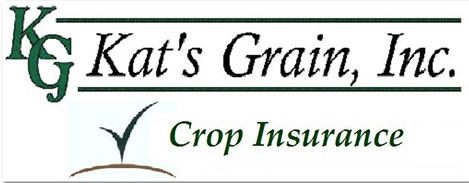| |
Netanyahu, Trump to Meet at Mar-a-Lago 07/26 06:16
WASHINGTON (AP) -- As president, Donald Trump went well beyond his
predecessors in fulfilling Israeli Prime Minister Benjamin Netanyahu's top
wishes from the United States. Yet by the time Trump left the White House,
relations between the two had broken down after Netanyahu rapidly congratulated
Joe Biden on his 2020 presidential victory.
On Friday, the two men will meet face-to-face for the first time in nearly
four years in a test of whether the relationship can be mended. Both have an
interest in getting past their differences.
For Trump, now the Republican presidential nominee, the meeting could cast
him as an ally and statesman, as well as sharpen efforts by Republicans to
portray themselves as the party most loyal to Israel.
That's as divisions among Americans over U.S. support for Israel's war
against Hamas in Gaza open cracks in what has been decades of strong bipartisan
backing for Israel, the biggest recipient of U.S. aid.
For Netanyahu, who was in the United States to address Congress and meet
with Biden, repairing relations with Trump is imperative given the prospect
that he may once again become president of the United States, Israel's main
arms supplier and protector.
For both men, Friday's meeting at Mar-a-Lago will highlight for their home
audiences their depiction of themselves as strong leaders who have gotten big
things done on the world stage, and can again.
One political gamble for Netanyahu is whether he could get more of the terms
he wants in any deal on a Gaza cease-fire and hostage release, and in his much
hoped-for closing of a normalization deal with Saudi Arabia, if he waits out
the Biden administration in hopes that Trump wins.
"Benjamin Netanyahu has spent much of his career in the last two decades in
tethering himself to the Republican Party," said Aaron David Miller, a former
U.S. diplomat for Arab-Israeli negotiations, now a senior fellow at the
Carnegie Endowment for International Peace.
For the next six months, that means "mending ties with an irascible, angry
president," Miller said, meaning Trump.
Trump broke off with Netanyahu in early 2021. That was after the Israeli
prime minister became one of the first world leaders to congratulate Biden for
his presidential election victory, disregarding Trump's false claim he had won.
"Bibi could have stayed quiet," Trump said in an interview with an Israel
newspaper back then. "He made a terrible mistake."
Netanyahu and Trump last met at a September 2020 White House signing
ceremony for the signature diplomatic achievement of both men's political
careers. It was an accord brokered by the Trump administration in which the
United Arab Emirates and Bahrain agreed to establish normal diplomatic
relations with Israel.
For Israel, it amounted to the two countries formally recognizing it for the
first time. It was a major step in what Israel hopes will be an easing of
tensions and a broadening of economic ties with its Arab neighbors.
In public postings and statements after his break with Netanyahu, Trump
portrayed himself as having stuck his neck out for Israel as president, and
Netanyahu paying him back with disloyalty.
He also has criticized Netanyahu on other points, faulting him as "not
prepared" for the Oct. 7 Hamas attacks that started the war in Gaza, for
example.
In his high-profile speech to Congress on Wednesday, Netanyahu gave
recognition to Biden, who has kept up military and diplomatic support for
Israel's offensive in Gaza despite opposition from within his Democratic Party.
But Netanyahu poured praise on Trump, calling the regional accords Trump
helped broker historic and thanking him "for all the things he did for Israel."
Netanyahu listed actions by the Trump administration long-sought by Israeli
governments -- the U.S. officially saying Israel had sovereignty over the Golan
Heights, captured from Syria during a 1967 war; a tougher U.S. policy toward
Iran; and Trump declaring Jerusalem the capital of Israel, breaking with
longstanding U.S. policy that Jerusalem's status should be decided in
Israeli-Palestinian negotiations.
"I appreciated that," Trump told "Fox & Friends" on Thursday, referring to
Netanyahu's praise.
He didn't quiet his criticism, however, of Israel's conduct of the war,
which has killed more than 39,000 Palestinians.
"I want him to finish up and get it done quickly. You gotta get it done
quickly, because they are getting decimated with his publicity," Trump said in
Thursday's interview.
"Israel is not very good at public relations, I'll tell you that," he added.
|
|

